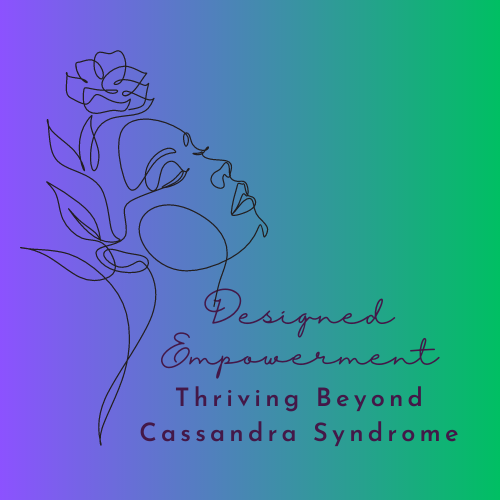Healing in Neurodiverse Relationships
By Lisa Marie Anzaldua
Many of us have found ourselves, at one point or another, feeling derailed from our center, lost, or overwhelmed. It's as if an invisible weight presses on our shoulders, leading to feelings of hopelessness, anxiety, and even depression. Such feelings are amplified when we feel unheard or invalidated by those around us.
Neurodiverse relationships, particularly those involving a partner with Autism Spectrum Disorder (previously known as Asperger's Syndrome), present unique challenges. Partners without this condition, often referred to as Neurotypicals (NT), can sometimes feel dismissed or disbelieved when expressing their struggles. The discrepancy between how the ASD partner behaves socially, compared to within the intimacy of home, can further deepen this divide.
This discrepancy has led to the term "Cassandra Syndrome." Those suffering from it feel a disconnect between their intuition and the shared reality, rendering them powerless. They're not believed when they vocalize the struggles in their relationship with their ASD partner. The feeling mirrors the ancient tale of Cassandra, who was gifted with the ability to foresee the future but cursed that no one would believe her prophecies.
Navigating Neurodiverse Relationships
The challenges for those with ASD, like intimacy, emotion communication, and understanding social norms, can be exhausting. Their struggles with bonding and attachment can lead to minimal energy reserves for their partner, resulting in feelings of neglect or misunderstanding.
Ongoing Traumatic Relationship Syndrome (OTRS) is a term that reflects the physical and mental toll such dynamics can have on the NT partner. It's crucial to understand that supporting NTs doesn't mean negating the challenges faced by the neurodiverse population. Both deserve compassion, understanding, and adjustment to ensure their needs are met.
Seeking Help: Personal Reflections
From personal experience, I know how important it is to seek help. Many of us have past traumas that influence our perceptions and reactions in our relationships. My journey, from struggling with complex post-traumatic stress disorder and anorexia to significant mind, body, spirit alignment, has taught me the significance of self-awareness and healing. Insights from personal challenges fuel my therapeutic practice and coaching program.
Many years ago, the struggles and nuances of neurodiverse relationships were brought to my attention through a close friend. Realizing the challenges faced by the allistic partner, especially when children are involved, only underscored the need for support in this area. With current statistics suggesting a significant number of people have an ASD profile, there are undoubtedly numerous NTs in such relationships, all seeking understanding and support.
Healing and Moving Forward
Yes, healing is possible. Every relationship and individual is unique, so there's no definitive answer. However, personal growth, understanding, and therapeutic guidance can create pathways toward better communication, reduced shame, and deeper bonding.
Taking the plunge to seek therapeutic help or even join a support group can be transformative. For those struggling with Cassandra Syndrome or OTRS, connecting with others who understand is the first step towards healing.
I invite you to join a community that comprehends your struggles, fosters growth, and encourages healing. Surrounding yourself with understanding and support can make a world of difference. In this environment, you'll find a sense of belonging and safety that paves the way for healing and peace. Together, we can navigate the complexities of neurodiverse relationships and thrive.
Stay tuned for the upcoming posts where we'll delve deeper into the nine steps to Thrive Beyond Cassandra Syndrome and more strategies for healing and personal growth.
